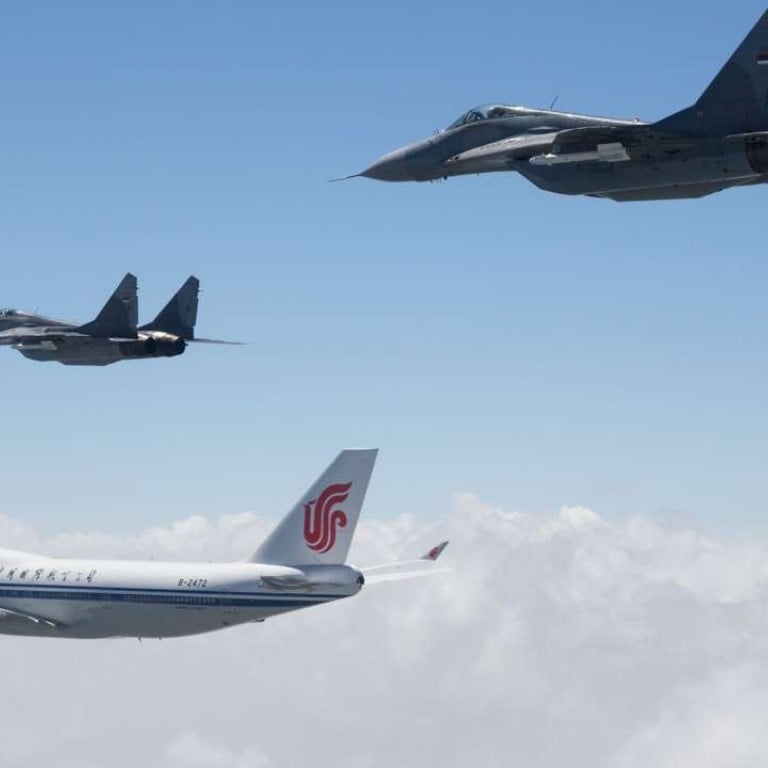
Chinese airlines are consistently late for this one surprising reason
Freeing up more airspace for civilian uses would help lower costs without damaging China’s national security
No one likes an autocrat, but if there has to be one, can’t we make the best of it? Here’s hoping President Xi Jinping sorts out the airspace issue in China.
Flights to and from the Chinese mainland are frequently and frustratingly delayed, and this is apparently because the People’s Liberation Army controls the skies, leaving commercial airlines to jostle over the slender remaining flight paths. Someone needs to change this situation.
A report in this newspaper said that when compared with international peers, Chinese cities ranked near the bottom for on-time departures of scheduled flights. Air traffic control issues are the number-one reason for flight delays, above weather, according to the Civil Aviation Administration of China.
Who knows how much such delays cost the country in lost time, money, productivity and airline profits. Plus, they anger the people. Brawls break out all the time at Chinese airports, and Hong Kong gets its share of the tension as well.
Last week a group of sleep-deprived mainland pensioners were stuck for hours in Hong Kong’s airport, as carriers kept them nearby in case a departure window opened up. “My biggest birthday wish is to leave now,” said another passenger, who had gone abroad to celebrate his 50th birthday.
One of the reasons cited for those delays? Military drills around Shanghai.
Is China really at such a threat of imminent invasion that the military must control 70 to 80 per cent of the airspace, compared to just 20 per cent in the United States? This seems like overkill.
The military is under control of the Chinese Communist Party, and the CCP has pruned the army’s powers in the past. The PLA once controlled large and diverse commercial operations, including controlling stakes in listed companies. However the former premier Zhu Rongji forced the military to disinvest from most, though not all, commercial activities.
Today the military buck stops with Xi Jinping. Like past CCP Secretary Generals, Xi is simultaneously the head of the Central Military Commission. Earlier this year, Xi unveiled a long-term strategy to sharply reduce the number of infantry soldiers, yet also invest in more high-end military equipment and training.
Xi wants a meaner but leaner force; and as part of the professionalisation effort, he is also targeting the PLA’s remaining commercial activities.
This seems a perfect time to sort out some of those airspace issues. After all, such inefficiency is not very befitting of a modern economy which has invested so much in infrastructure. Nor is it befitting of China’s political system; what’s the point of authoritarianism if the trains and planes don’t run on time?
On a related issue, Donald Trump is now virtually promising voters a trade war with China, should he be elected the US president. In a campaign speech last week, Trump vowed to rip up past trade deals, and place huge tariffs on Chinese goods. “I’m going to instruct my treasury secretary to label China a currency manipulator,” he added.

Experts did not find Trump’s grasp of economic realities very convincing. For instance, most pointed out the obvious: if Beijing stopped “manipulating” its currency today, then the renminbi would fall, not rise. An opinion piece from the Chicago Tribune was titled: “On trade, Donald Trump is an encyclopedia of error”.
But beyond his grasp of the economic issues, does Trump even know who’s running China at the moment? And if so, does he really want to tango with the “tigers and flies” strongman?
This is a man who has caught hundreds of thousands of officials in the net of his anti-graft campaign, from a former Politburo Standing Committee member to small-time cadres who ordered one bottle of Hennessy too many.
The targets are as varied as they are surprising. On International Women’s Day in 2015, five Chinese feminists were jailed just for protesting against sexual harassment - Trump can only dream of having that kind of clout.
Moreover, a war of words with the Americans might provide a convenient external diversion at a time when the Chinese economic miracle is waning. And what a perfect foe for the suave Xi. Trump, the cartoonish face of decadent capitalism: rich, big-mouthed, paranoid and … that hair.
Cathy Holcombe is a Hong Kong-based financial writer

